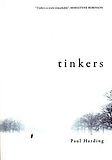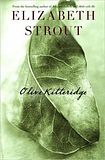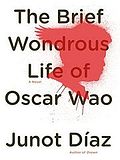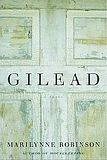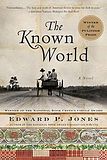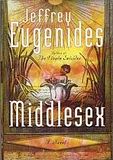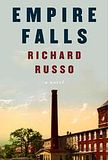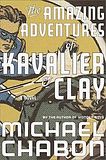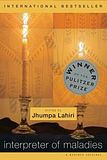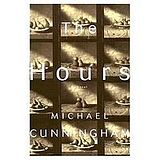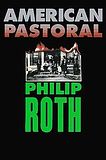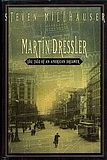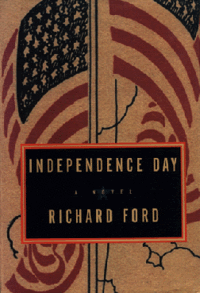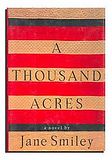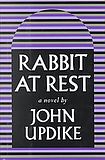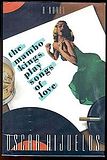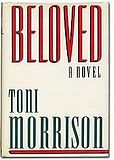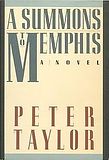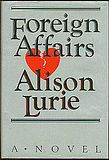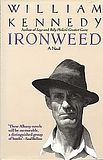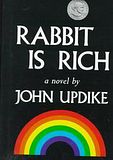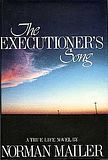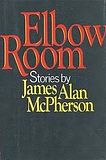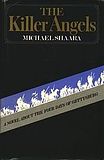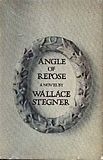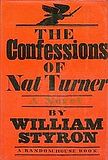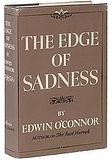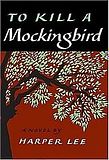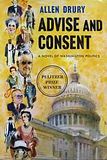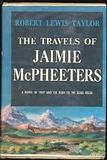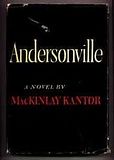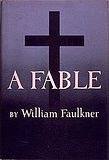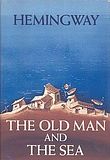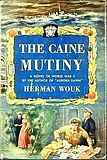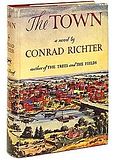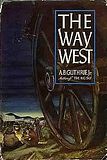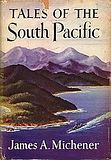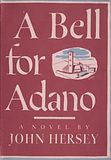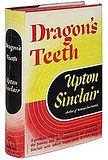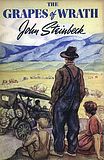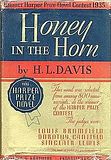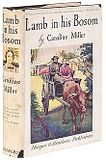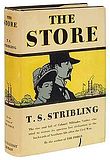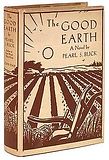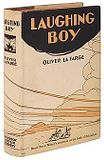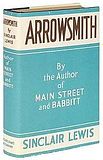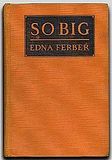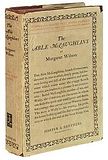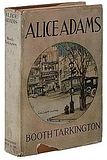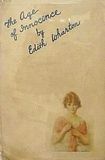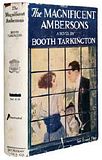The Pulitzer Prize was established by Joseph Pulitzer, a journalist and newspaper publisher. Pulitzer left money to Columbia University upon his death in 1911. In his will, he made a provision for the establishment of the Pulitzer prizes as an incentive to excellence. A portion of his bequest was used to found the university's journalism school in 1912. The first Pulitzer prizes were awarded June 4, 1917, and still continue to be announced each April.
There are a number of categories in which the Prizes are awarded, however this post will feature the fiction category. It was called "Novel" from 1917-1947, and renamed in 1948 to "Fiction."
So, if you're in a rut on what to read next, perhaps Pulitzer Prize winning fiction would be the ultimate booklist. Finalists have also been announced since 1980, but I will only be listing the winners. A lot of the older titles are available as free e-books from Project Gutenberg and Google.
This post took me a bit longer (days) to put together than I had anticipated. I hope you find it as informative as I did in researching the titles. Happy reading!
Images from Wikipedia.org
2012: (No Award)
2011: A Visit from the Goon Squad by Jennifer Egan (Alfred A. Knopf)
by Jennifer Egan (Alfred A. Knopf)
 by Paul Harding (Bellevue Literary Press)
by Paul Harding (Bellevue Literary Press)
 by Elizabeth Strout (Random House)
by Elizabeth Strout (Random House)
 by Junot Diaz (Riverhead Books)
by Junot Diaz (Riverhead Books)
 by Cormac McCarthy (Alfred A. Knopf)
by Cormac McCarthy (Alfred A. Knopf)
 by Geraldine Brooks (Viking)
by Geraldine Brooks (Viking)
 by Marilynne Robinson (Farrar)
by Marilynne Robinson (Farrar)
 by Edward P. Jones (Amistad/HarperCollins)
by Edward P. Jones (Amistad/HarperCollins)
 by Richard Russo (Alfred A. Knopf)
by Richard Russo (Alfred A. Knopf)
 by Michael Chabon (Random House)
by Michael Chabon (Random House)
 by Jhumpa Lahiri (Mariner Books/Houghton Mifflin)
by Jhumpa Lahiri (Mariner Books/Houghton Mifflin)
 by Michael Cunningham (Farrar, Straus, and Giroux)
by Michael Cunningham (Farrar, Straus, and Giroux)
 by Philip Roth (Houghton Mifflin)
by Philip Roth (Houghton Mifflin)
 by Steven Millhauser (Crown)
by Steven Millhauser (Crown)
 by Richard Ford (Alfred A. Knopf)
by Richard Ford (Alfred A. Knopf)
 1995: The Stone Diaries
1995: The Stone Diaries by Carol Shields (Viking)
by Carol Shields (Viking)
 by E. Annie Proulx (Charles Scribner's Sons)
by E. Annie Proulx (Charles Scribner's Sons)
1993: A Good Scent from a Strange Mountain by Robert Olen Butler (Henry Holt)
by Robert Olen Butler (Henry Holt)
1992: A Thousand Acres by Jane Smiley (Alfred A. Knopf)
by Jane Smiley (Alfred A. Knopf)
1991: Rabbit at Rest by John Updike (Alfred A. Knopf)
by John Updike (Alfred A. Knopf)
 by Oscar Hijuelos (Farrar)
by Oscar Hijuelos (Farrar)
1989: Breathing Lessons by Anne Tyler (Alfred A. Knopf)
by Anne Tyler (Alfred A. Knopf)
 by Toni Morrison (Alfred A. Knopf)
by Toni Morrison (Alfred A. Knopf)
 by Peter Taylor (Alfred A. Knopf)
by Peter Taylor (Alfred A. Knopf)
 by Larry McMurtry
by Larry McMurtry
 by Alison Lurie (Random House)
by Alison Lurie (Random House)
 by William Kennedy (Viking)
by William Kennedy (Viking)
1983: The Color Purple by Alice Walker (Harcourt Brace)
by Alice Walker (Harcourt Brace)
 by John Updike (Knopf)
by John Updike (Knopf)
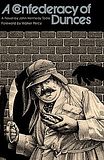 1981: A Confederacy of Dunces
1981: A Confederacy of Dunces by John Kennedy Toole (published posthumously) (Louisiana State University Press)
by John Kennedy Toole (published posthumously) (Louisiana State University Press)
1980: The Executioner's Song by Norman Mailer (Little)
by Norman Mailer (Little)
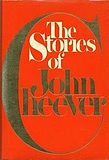 1979: The Stories of John Cheever
1979: The Stories of John Cheever by John Cheever (Knopf)
by John Cheever (Knopf)
 by James Alan McPherson (Atlantic Monthly Press)
by James Alan McPherson (Atlantic Monthly Press)
1977: (No Award)
1976: Humboldt's Gift by Saul Bellow (Viking)
by Saul Bellow (Viking)
 by Michael Shaara (McKay)
by Michael Shaara (McKay)
1974: (No Award)
 1973: The Optimist's Daughter
1973: The Optimist's Daughter by Eudora Welty (Random)
by Eudora Welty (Random)
 by Wallace Stegner (Doubleday)
by Wallace Stegner (Doubleday)
1971: (No Award)
 1970: Collected Stories
1970: Collected Stories by Jean Stafford (Farrar)
by Jean Stafford (Farrar)
 by N. Scott Momaday (Harper)
by N. Scott Momaday (Harper)
1968: The Confessions of Nat Turner by William Styron (Random)
by William Styron (Random)
 by Bernard Malamud (Farrar)
by Bernard Malamud (Farrar)
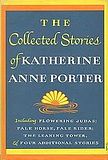 1966: Collected Stories
1966: Collected Stories by Katherine Anne Porter (Harcourt)
by Katherine Anne Porter (Harcourt)
 by Shirley Ann Grau (Random)
by Shirley Ann Grau (Random)
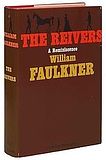 1963: The Reivers
1963: The Reivers by William Faulkner (Random)
by William Faulkner (Random)
 by Edwin O'Connor (Little)
by Edwin O'Connor (Little)
1961: To Kill A Mockingbird by Harper Lee (Lippincott)
by Harper Lee (Lippincott)
 by Allen Drury (Doubleday)
by Allen Drury (Doubleday)
1959: The Travels of Jaimie McPheeters by Robert Lewis Taylor (Doubleday)
by Robert Lewis Taylor (Doubleday)
1958: A Death in the Family by James Agee (published posthumously) (McDowell, Obolensky)
by James Agee (published posthumously) (McDowell, Obolensky)
1956: Andersonville by MacKinlay Kantor (World)
by MacKinlay Kantor (World)
 by William Faulkner (Random)
by William Faulkner (Random)
1954: (No Award)
1953: The Old Man and the Sea by Ernest Hemingway (Scribner)
by Ernest Hemingway (Scribner)
 by Herman Wouk (Doubleday)
by Herman Wouk (Doubleday)
1951: The Town by Conrad Richter (Knopf)
by Conrad Richter (Knopf)
 by A.B. Guthrie (Sloane)
by A.B. Guthrie (Sloane)
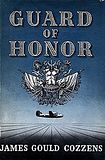 1949: Guard of Honor
1949: Guard of Honor
 by James Gould Cozzens (Harcourt)
by James Gould Cozzens (Harcourt)

 by James A. Michener (Macmillan)
by James A. Michener (Macmillan)
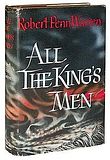
1947: All the King's Men by Robert Penn Warren (Harcourt)
by Robert Penn Warren (Harcourt)
1945: A Bell for Adano by John Hersey (Knopf)
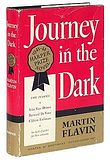
1944: Journey in the Dark by Martin Flavin (Harper)
1943: Dragon's Teeth by Upton Sinclair (Viking)
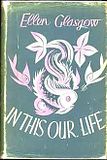 1942: In This Our Life by Ellen Glasgow (Harcourt)
1942: In This Our Life by Ellen Glasgow (Harcourt)
1941: (No Award)
1940: The Grapes of Wrath by John Steinbeck (Viking)
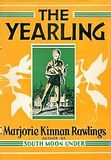 1939: The Yearling by Marjorie Kinnan Rawlings (Scribner)
1939: The Yearling by Marjorie Kinnan Rawlings (Scribner)
1938: The Late George Apley by John Phillips Marquand (Little)
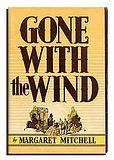 1937: Gone With the Wind by Margaret Mitchell (Macmillan)
1937: Gone With the Wind by Margaret Mitchell (Macmillan)
1936: Honey in the Horn by Harold L. Davis (Harper)
1935: Now in November by Josephine Winslow Johnson (Simon and Schuster)
1933: The Store by T.S. Stribling (Doubleday)
1931: Years of Grace by Margaret Ayer Barnes (Houghton)
1929: Scarlet Sister Mary by Julia Peterkin (Bobbs)
1925: So Big by Edna Ferber (Doubleday)
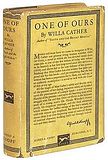 1923: One of Ours by Willa Cather (Knopf)
1923: One of Ours by Willa Cather (Knopf)
1921: The Age of Innocence by Edith Wharton (Appleton)
1919: The Magnificent Ambersons by Booth Tarkington (Doubleday)
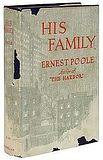 1918: His Family by Ernest Poole (Macmillan)
1918: His Family by Ernest Poole (Macmillan)
There are a number of categories in which the Prizes are awarded, however this post will feature the fiction category. It was called "Novel" from 1917-1947, and renamed in 1948 to "Fiction."
So, if you're in a rut on what to read next, perhaps Pulitzer Prize winning fiction would be the ultimate booklist. Finalists have also been announced since 1980, but I will only be listing the winners. A lot of the older titles are available as free e-books from Project Gutenberg and Google.
This post took me a bit longer (days) to put together than I had anticipated. I hope you find it as informative as I did in researching the titles. Happy reading!
Images from Wikipedia.org
2012: (No Award)
2011: A Visit from the Goon Squad
Synopsis: Bennie is an aging former punk rocker and record executive. Sasha is the passionate, troubled young woman he employs. Here Jennifer Egan brilliantly reveals their pasts, along with the inner lives of a host of other characters whose paths intersect with theirs. With music pulsing on every page, A Visit from the Goon Squad is a startling, exhilarating novel of self-destruction and redemption.2010: Tinkers
Synopsis: An old man lies dying. Propped up in his living room and surrounded by his children and grandchildren, George Washington Crosby drifts in and out of consciousness, back to the wonder and pain of his impoverished childhood in Maine. As the clock repairer’s time winds down, his memories intertwine with those of his father, an epileptic, itinerant peddler and his grandfather, a Methodist preacher beset by madness. At once heartbreaking and life affirming, Tinkers is an elegiac meditation on love, loss, illness, faith, and the fierce beauty of nature.2009: Olive Kitteridge
Synopsis: At times stern, at other times patient, at times perceptive, at other times in sad denial, Olive Kitteridge, a retired schoolteacher, deplores the changes in her little town of Crosby, Maine, and in the world at large, but she doesn’t always recognize the changes in those around her: a lounge musician haunted by a past romance; a former student who has lost the will to live; Olive’s own adult child, who feels tyrannized by her irrational sensitivities; and her husband, Henry, who finds his loyalty to his marriage both a blessing and a curse. As the townspeople grapple with their problems, mild and dire, Olive is brought to a deeper understanding of herself and her life–sometimes painfully, but always with ruthless honesty. Olive Kitteridge offers profound insights into the human condition–its conflicts, its tragedies and joys, and the endurance it requires.2008: The Brief Wondrous Life of Oscar Wao
Synopsis: Things have never been easy for Oscar, a sweet but disastrously overweight, lovesick Dominican ghetto nerd. From his home in New Jersey, where he lives with his old-world mother and rebellious sister, Oscar dreams of becoming the Dominican J. R. R. Tolkien and, most of all, of finding love. But he may never get what he wants, thanks to the fukú – the curse that has haunted the Oscar's family for generations, dooming them to prison, torture, tragic accidents, and, above all, ill-starred love. Oscar, still waiting for his first kiss, is just its most recent victim. Diaz immerses us in the tumultuous life of Oscar and the history of the family at large, rendering with genuine warmth and dazzling energy, humor, and insight the Dominican–American experience, and, ultimately, the endless human capacity to persevere in the face of heartbreak and loss.2007: The Road
Synopsis: The apocalypse itself becomes a set piece. Unfolding in a terrifying future where Armageddon has been waged and lost, The Road traces the odyssey of a father and his young son through a desolate landscape of devastation and danger. Powerful, moving, and extraordinary by any standard, this is McCarthy at his greatest and gravest.2006: March
Synopsis: From Louisa May Alcott’s beloved classic Little Women, Geraldine Brooks has animated the character of the absent father, March, and crafted a story “filled with the ache of love and marriage and with the power of war upon the mind and heart of one unforgettable man” (Sue Monk Kidd). With “pitch-perfect writing” (USA Today), Brooks follows March as he leaves behind his family to aid the Union cause in the Civil War. His experiences will utterly change his marriage and challenge his most ardently held beliefs. A lushly written, wholly original tale steeped in the details of another time, March secures Geraldine Brooks’s place as a renowned author of historical fiction.2005: Gilead
Synopsis: Twenty-four years after her first novel, Housekeeping2004: The Known World, Marilynne Robinson returns with an intimate tale of three generations from the Civil War to the twentieth century: a story about fathers and sons and the spiritual battles that still rage at America's heart. Writing in the tradition of Emily Dickinson and Walt Whitman, Marilynne Robinson's beautiful, spare, and spiritual prose allows "even the faithless reader to feel the possibility of transcendent order" (Slate). In the luminous and unforgettable voice of Congregationalist minister John Ames, Gilead reveals the human condition and the often unbearable beauty of an ordinary life.
Synopsis: The Known World tells the story of Henry Townsend, a black farmer and former slave who falls under the tutelage of William Robbins, the most powerful man in Manchester County, Virginia. Making certain he never circumvents the law, Townsend runs his affairs with unusual discipline. But when death takes him unexpectedly, his widow, Caldonia, can't uphold the estate's order, and chaos ensues. Jones has woven a footnote of history into an epic that takes an unflinching look at slavery in all its moral complexities.
2003: Middlesex by Jeffrey Eugenides (Farrar)
by Jeffrey Eugenides (Farrar)
Synopsis: "I was born twice: first, as a baby girl, on a remarkably smogless Detroit day of January 1960; and then again, as a teenage boy, in an emergency room near Petoskey, Michigan, in August of l974. . . My birth certificate lists my name as Calliope Helen Stephanides. My most recent driver's license...records my first name simply as Cal."2002: Empire Falls
So begins the breathtaking story of Calliope Stephanides and three generations of the Greek-American Stephanides family who travel from a tiny village overlooking Mount Olympus in Asia Minor to Prohibition-era Detroit, witnessing its glory days as the Motor City, and the race riots of l967, before they move out to the tree-lined streets of suburban Grosse Pointe, Michigan. To understand why Calliope is not like other girls, she has to uncover a guilty family secret and the astonishing genetic history that turns Callie into Cal, one of the most audacious and wondrous narrators in contemporary fiction. Lyrical and thrilling, Middlesex is an exhilarating reinvention of the American epic.
Synopsis: Miles Roby has been slinging burgers at the Empire Grill for 20 years, a job that cost him his college education and much of his self-respect. What keeps him there? It could be his bright, sensitive daughter Tick, who needs all his help surviving the local high school. Or maybe it’s Janine, Miles’ soon-to-be ex-wife, who’s taken up with a noxiously vain health-club proprietor. Or perhaps it’s the imperious Francine Whiting, who owns everything in town–and seems to believe that “everything” includes Miles himself. In Empire Falls Richard Russo delves deep into the blue-collar heart of America in a work that overflows with hilarity, heartache, and grace.2001: The Amazing Adventures of Kavalier and Clay
Synopsis: It is New York City in 1939. Joe Kavalier, a young artist who has also been trained in the art of Houdini-esque escape, has just pulled off his greatest feat to date: smuggling himself out of Nazi-occupied Prague. He is looking to make big money, fast, so that he can bring his family to freedom. His cousin, Brooklyn's own Sammy Clay, is looking for a collaborator to create the heroes, stories, and art for the latest novelty to hit the American dreamscape: the comic book. Out of their fantasies, fears, and dreams, Joe and Sammy weave the legend of that unforgettable champion the Escapist. And inspired by the beautiful and elusive Rosa Saks, a woman who will be linked to both men by powerful ties of desire, love, and shame, they create the otherworldly mistress of the night, Luna Moth. As the shadow of Hitler falls across Europe and the world, the Golden Age of comic books has begun.2000: Interpreter of Maladies
Synopsis: Navigating between the Indian traditions they've inherited and the baffling new world, the characters in Jhumpa Lahiri's elegant, touching stories seek love beyond the barriers of culture and generations. In "A Temporary Matter," published in The New Yorker, a young Indian-American couple faces the heartbreak of a stillborn birth while their Boston neighborhood copes with a nightly blackout. In the title story, an interpreter guides an American family through the India of their ancestors and hears an astonishing confession.1999: The Hours
Synopsis: In The Hours, Michael Cunningham, widely praised as one of the most gifted writers of his generation, draws inventively on the life and work of Virginia Woolf to tell the story of a group of contemporary characters struggling with the conflicting claims of love and inheritance, hope and despair. The narrative of Woolf's last days before her suicide early in World War II counterpoints the fictional stories of Samuel, a famous poet whose life has been shadowed by his talented and troubled mother, and his lifelong friend Clarissa, who strives to forge a balanced and rewarding life in spite of the demands of friends, lovers, and family.1998: American Pastoral
Synopsis: As the American century draws to an uneasy close, Philip Roth gives us a novel of unqualified greatness that is an elegy for all our century's promises of prosperity, civic order, and domestic bliss. Roth's protagonist is Swede Levov, a legendary athlete at his Newark high school, who grows up in the booming postwar years to marry a former Miss New Jersey, inherit his father's glove factory, and move into a stone house in the idyllic hamlet of Old Rimrock. And then one day in 1968, Swede's beautiful American luck deserts him.1997: Martin Dressler: the tale of an American dreamer
For Swede's adored daughter, Merry, has grown from a loving, quick-witted girl into a sullen, fanatical teenager—a teenager capable of an outlandishly savage act of political terrorism. And overnight Swede is wrenched out of the longer-for American pastoral and into the indigenous American berserk. Compulsively readable, propelled by sorrow, rage, and a deep compassion for its characters, this is Roth's masterpiece.
Synopsis: Young Martin Dressler begins his career as an industrious helper in his father's cigar store. In the course of his restless young manhood, he makes a swift and eventful rise to the top, accompanied by two sisters--one a dreamlike shadow, the other a worldly business partner. As the eponymous Martin's vision becomes bolder and bolder he walks a haunted line between fantasy and reality, madness and ambition, art and industry, a sense of doom builds piece-by-hypnotic piece until this mesmerizing journey into the heart of an American dreamer reaches its bitter-sweet conclusion.1996: Independence Day
Synopsis: In this visionary sequel to The Sportswriter, Richard Ford deepens his portrait of one of the most unforgettable characters in American fiction, and in so doing gives us an indelible portrait of America.Frank Bascombe, in the aftermath of his divorce and the ruin of his career, has entered an "Existence Period," selling real estate in Haddam, New Jersey, and mastering the high-wire act of normalcy. But over one Fourth of July weekend, Frank is called into sudden, bewildering engagement with life.Independence Day is a moving, peerlessly funny odyssey through America and through the layered consciousness of one of its most compelling literary incarnations, conducted by a novelist of astonishing empathy and perception.
 1995: The Stone Diaries
1995: The Stone DiariesSynopsis: This fictionalized autobiography of Daisy Goodwill Flett is a subtle but affecting portrait of an everywoman reflecting on an unconventional life. What transforms this seemingly ordinary tale is the richness of Daisy’s vividly described inner life—from her earliest memories of her adoptive mother to her awareness of impending death.1994: The Shipping News
Synopsis: E. Annie Proulx focuses on a Newfoundland fishing town in a tale about a third-rate newspaperman and the women in his life -- his elderly aunt and two young daughters -- who decide to resettle in their ancestral seaside home. The transformation each of the character undergoes following move is profound. A vigorous, darkly comic, and at times magical portrait of the contemporary American family.
1993: A Good Scent from a Strange Mountain
Synopsis: Robert Olen Butler's lyrical and poignant collection of stories about the aftermath of the Vietnam War and its impact on the Vietnamese was acclaimed by critics across the nation and won the Pulitzer Prize in 1993.
1992: A Thousand Acres
Synopsis: A successful Iowa farmer decides to divide his farm between his three daughters. When the youngest objects, she is cut out of his will. This sets off a chain of events that brings dark truths to light and explodes long-suppressed emotions. An ambitious reimagining of Shakespeare’s King Lear cast upon a typical American community in the late twentieth century, A Thousand Acres takes on themes of truth, justice, love, and pride, and reveals the beautiful yet treacherous topography of humanity.
1991: Rabbit at Rest
Synopsis: In John Updike's fourth and final novel about ex-basketball player Harry "Rabbit" Angstrom, the hero has acquired heart trouble, a Florida condo, and a second grandchild. His son, Nelson, is behaving erratically; his daughter-in-law, Pru, is sending out mixed signals; and his wife, Janice, decides in mid-life to become a working girl. As, though the winter, spring, and summer of 1989, Reagan's debt-ridden, AIDS-plagued America yields to that of George Bush, Rabbit explores the bleak terrain of late middle age, looking for reasons to live.1990: The Mambo Kings Play Songs of Love
Synopsis: Here is the story of the memorable Castillo brothers, émigrés from Havana to New York's Upper West Side. The lovelorn songwriter Nestor and his macho brother Cesar find success in the city's dance halls and beyond playing the rhythms that earn them their band's name, as they struggle with elusive fame and lost love in a richly sensual tale that has become a cultural touchstone and an enduring favorite.
1989: Breathing Lessons
Synopsis: Maggie and Ira Moran have been married for twenty-eight years–and it shows: in their quarrels, in their routines, in their ability to tolerate with affection each other’s eccentricities. Maggie, a kooky, lovable meddler and an irrepressible optimist, wants nothing more than to fix her son’s broken marriage. Ira is infuriatingly practical, a man “who should have married Ann Landers.” And what begins as a day trip to a funeral becomes an adventure in the unexpected. As Maggie and Ira navigate the riotous twists and turns, they intersect with an assorted cast of eccentrics–and rediscover the magic of the road called life and the joy of having somebody next to you to share the ride . . . bumps and all.1988: Beloved
Synopsis: Sethe was born a slave and escaped to Ohio, but eighteen years later she is still not free. She has borne the unthinkable and not gone mad, yet she is still held captive by memories of Sweet Home, the beautiful farm where so many hideous things happened. Meanwhile Sethe’s house has long been troubled by the angry, destructive ghost of her baby, who died nameless and whose tombstone is engraved with a single word: Beloved.1987: A Summons to Memphis
Sethe works at beating back the past, but it makes itself heard and felt incessantly in her memory and in the lives of those around her. When a mysterious teenage girl arrives, calling herself Beloved, Sethe’s terrible secret explodes into the present.
Synopsis: A Summons to Memphis introduces the Carver family, natives of Nashville, residents, with the exception of Phillip, of Memphis, Tennessee.1986: Lonesome Dove
During the twilight of a Sunday afternoon in March, New York book editor Phillip Carver receives an urgent phone call from each of his older, unmarried sisters. They plead with Phillip to help avert their widower father's impending remarriage to a younger woman. Hesitant to get embroiled in a family drama, he reluctantly agrees to go back south, only to discover the true motivation behing his sisters' concern. While there, Phillip is forced to confront his domineering siblings, a controlling patriarch, and flood of memories from this troubled past.
A love story, an adventure, and an epic of the frontier, Larry McMurtry’s Pulitzer Prize— winning classic, Lonesome Dove, the third book in the Lonesome Dove tetralogy, is the grandest novel ever written about the last defiant wilderness of America. Journey to the dusty little Texas town of Lonesome Dove and meet an unforgettable assortment of heroes and outlaws, whores and ladies, Indians and settlers. Richly authentic, beautifully written, always dramatic, Lonesome Dove is a book to make us laugh, weep, dream, and remember.1985: Foreign Affairs
Synopsis: Virginia Miner, a fifty-something, unmarried tenured professor, is in London to work on her new book about children’s folk rhymes. Despite carrying a U.S. passport, Vinnie feels essentially English and rather looks down on her fellow Americans. But in spite of that, she is drawn into a mortifying and oddly satisfying affair with an Oklahoman tourist who dresses more Bronco Billy than Beau Brummel.1984: Ironweed
Also in London is Vinnie’s colleague Fred Turner, a handsome, flat broke, newly separated, and thoroughly miserable young man trying to focus on his own research. Instead, he is distracted by a beautiful and unpredictable English actress and the world she belongs to. Both American, both abroad, and both achingly lonely, Vinnie and Fred play out their confused alienation and dizzying romantic liaisons in Alison Lurie’s Pulitzer Prize-winning novel. Smartly written, poignant, and witty, Foreign Affairs remains an enduring comic masterpiece.
Synopsis: Ironweed is the best-known of William Kennedy's three Albany-based novels. Francis Phelan, ex-ballplayer, part-time gravedigger, full-time drunk, has hit bottom. Years ago he left Albany in a hurry after killing a scab during a trolley workers' strike; he ran away again after accidentally - and fatally - dropping his infant son. Now, in 1938, Francis is back in town, roaming the old familiar streets with his hobo pal, Helen, trying to make peace with the ghosts of the past and the present.
1983: The Color Purple
Celie is a poor black woman whose letters tell the story of 20 years of her life, beginning at age 14 when she is being abused and raped by her father and attempting to protect her sister from the same fate, and continuing over the course of her marriage to "Mister," a brutal man who terrorizes her. Celie eventually learns that her abusive husband has been keeping her sister's letters from her and the rage she feels, combined with an example of love and independence provided by her close friend Shug, pushes her finally toward an awakening of her creative and loving self.1982: Rabbit is Rich
Synopsis: Third in the Rabbit Angstrom series. Rabbit Angstron has inherited his father-in-law's business as a dealer in new and secondhand cars, and greatly enjoys his new status as owner of a business and member of the golf club. Unfortunately, his son Nelson has dropped out of college - he has made a girl pregnant. Rabbit feels enraged.
 1981: A Confederacy of Dunces
1981: A Confederacy of DuncesSynopsis: Published a decade after the death of the author, this wildly inventive comic masterpiece features one of the most unforgettable characters in modern fiction: Ignatius Reilly, a mammoth misfit Medievalist hilariously at odds with the 20th-century world.
1980: The Executioner's Song
Synopsis: In what is arguably his greatest book, America's most heroically ambitious writer follows the short, blighted career of Gary Gilmore, an intractably violent product of America's prisons who became notorious for two reasons: first, for robbing two men in 1976, then killing them in cold blood; and, second, after being tried and convicted, for insisting on dying for his crime. To do so, he had to fight a system that seemed paradoxically intent on keeping him alive long after it had sentenced him to death.
Norman Mailer tells Gilmore's story--and those of the men and women caught up in his procession toward the firing squad--with implacable authority, steely compassion, and a restraint that evokes the parched landscapes and stern theology of Gilmore's Utah. The Executioner's Song is a trip down the wrong side of the tracks to the deepest sources of American loneliness and violence.
 1979: The Stories of John Cheever
1979: The Stories of John CheeverSynopsis: Here are sixty-one stories that chronicle the lives of what has been called "the greatest generation." From the early wonder and disillusionment of city life in "The Enormous Radio" to the surprising discoveries and common mysteries of suburbia in "The Housebreaker of Shady Hill" and "The Swimmer," Cheever tells us everything we need to know about "the pain and sweetness of life."1978: Elbow Room
Synopsis: A beautiful collection of short stories that explores blacks and whites, Elbow Room is alive with warmth and humor. Bold and very real, these twelve stories examine a world we all know but find difficult to define.
1977: (No Award)
1976: Humboldt's Gift
Synopsis: Saul Bellow’s Pulitzer Prize–winning novel explores the long friendship between Charlie Citrine, a young man with an intense passion for literature, and the great poet Von Humboldt Fleisher. At the time of his death, however, Humboldt is a failure, and Charlie’s life is falling apart: his career is at a standstill, and he’s enmeshed in an acrimonious divorce, infatuated with a highly unsuitable young woman, and involved with a neurotic mafioso. And then Humboldt acts from beyond the grave, bestowing upon Charlie an unexpected legacy that may just help him turn his life around.1975: The Killer Angels
Synopsis: In a quiet, deliberate, understated fashion, Michael Shaara paints a picture of the military leaders at the Battle of Gettysburg. I learned of the leaders, both flawed and good, and how they dealt with the weight of sending men into what is considered the pivotal battle of the civil war. This is the book that inspired Ken Burns to create his award-winning documentary THE CIVIL WAR.
1974: (No Award)
 1973: The Optimist's Daughter
1973: The Optimist's DaughterSynopsis: The Optimist's Daughter is the story of Laurel McKelva Hand, a young woman who has left the South and returns, years later, to New Orleans, where her father is dying. After his death, she and her silly young stepmother go back still farther, to the small Mississippi town where she grew up. Alone in the old house, Laurel finally comes to an understanding of the past, herself, and her parents.1972: Angle of Repose
Synopsis: Confined to a wheelchair, retired historian Lyman Ward sets out to write his grandparents' remarkable story, chronicling their days spent carving civilization into the surface of America's western frontier. But his research reveals even more about his own life than he's willing to admit. What emerges is an enthralling portrait of four generations in the life of an American family.
1971: (No Award)
 1970: Collected Stories
1970: Collected StoriesSynopsis: These Pulitzer Prize-winning stories represent the major short works of fiction by one of the most distinctively American stylists of her day. Jean Stafford communicates the small details of loneliness and connection, the search for freedom and the desire to belong, that not only illuminate whole lives but also convey with an elegant economy of words the sense of the place and time in which her protagonists find themselves.1969: House Made of Dawn
Synopsis: A young Native American, Abel has come home from a foreign war to find himself caught between two worlds. The first is the world of his father's, wedding him to the rhythm of the seasons, the harsh beauty of the land, and the ancient rites and traditions of his people. But the other world -- modern, industrial America -- pulls at Abel, demanding his loyalty, claiming his soul, goading him into a destructive, compulsive cycle of dissipation and disgust. And the young man, torn in two, descends into hell.
1968: The Confessions of Nat Turner
Synopsis: In the late summer of 1831, in a remote section of southeastern Virginia, there took place the only effective, sustained revolt in the annals of American Negro slavery...1967: The Fixer
The revolt was led by a remarkable Negro preacher named Nat Turner, an educated slave who felt himself divinely ordained to annihilate all the white people in the region.
The Confessions of Nat Turner is narrated by Nat himself as he lingers in jail through the cold autumnal days before his execution. The compelling story ranges over the whole of Nat's Life, reaching its inevitable and shattering climax that bloody day in August.
The Confessions of Nat Turner is not only a masterpiece of storytelling; is also reveals in unforgettable human terms the agonizing essence of Negro slavery. Through the mind of a slave, Willie Styron has re-created a catastrophic event, and dramatized the intermingled miseries, frustrations--and hopes--which caused this extraordinary black man to rise up out of the early mists of our history and strike down those who held his people in bondage.
Synopsis: Set in Czarist Russia, The Fixer is the story of the strains and anxieties that beset a man who finds himself a stranger in his community and a victim of irrational prejudice as a wave of anti-Semitic hysteria engulfs a town after the murder of a boy.
 1966: Collected Stories
1966: Collected StoriesSynopsis: Porter’s reputation as one of America’s most distinguished writers rests chiefly on her superb short stories. This volume includes the collections Flowering Judas; Pale Horse, Pale Rider; and The Leaning Tower as well as four stories not available elsewhere in book form. Winner of the National Book Award and the Pulitzer Prize.1965: The Keepers of the House
Synopsis: Entrenched on the same land since the early 1800s, the Howlands have, for seven generations, been pillars of their Southern community. Extraordinary family lore has been passed down to Abigail Howland, but not all of it. When shocking facts come to light about her late grandfather William’s relationship with Margaret Carmichael, a black housekeeper, the community is outraged, and quickly gathers to vent its fury on Abigail. Alone in the house the Howlands built, she is at once shaken by those who have betrayed her, and determined to punish the town that has persecuted her and her kin.1964: (No Award)
 1963: The Reivers
1963: The ReiversSynopsis: This grand misadventure is the story of three unlikely thieves, or reivers: 11-year-old Lucius Priest and two of his family's retainers. In 1905, these three set out from Mississippi for Memphis in a stolen motorcar. The astonishing and complicated results reveal Faulkner as a master of the picaresque.1962: The Edge of Sadness
Synopsis: In this moving novel, Father Hugh Kennedy, a recovering alcoholic, returns to Boston to repair his damaged priesthood. There he is drawn into the unruly world of the Carmodys, a sprawling, prosperous Irish family teeming with passion and riddled with secrets. The story of this entanglement is a beautifully rendered tale of grace and renewal, of friendship and longing, of loneliness and spiritual aridity giving way to hope.
1961: To Kill A Mockingbird
Synopsis: The book follows three years in the life of Scout Finch, her brother Jem, their father Atticus, and their fictional town of Maycomb, Alabama, in the era of the Great Depression. The first half of the novel focuses mainly on Scout and Jem's childhood - their friend Dill, their fixation on their neighbor "Boo" Radley, and their experiences at school. The second part of the book is marked both by the ongoing trial of a black man accused of raping a white woman, whom Atticus has been called to defend, and the repercussions this trial has on the children's eventual coming of age.1960: Advise and Consent
Synopsis: Advise and Consent is a study of political animals in their natural habitat and is universally recognized as THE Washington novel. It begins with Senate confirmation hearings for a liberal Secretary of State and concludes two weeks later, after debate and controversy have exploded this issue into a major crisis.
1959: The Travels of Jaimie McPheeters
Synopsis: The Travels Of Jaimie McPheeters is the lively story of a 13-year-old boy's adventures on a journey across America in 1849. This million-copy Pulitzer Prize-winning classic details the journey of Jaimie and his father from Kentucky to gold-rush California.
1958: A Death in the Family
Synopsis: Published in 1957, two years after its author's death at the age of forty-five, A Death in the Family remains a near-perfect work of art, an autobiographical novel that contains one of the most evocative depictions of loss and grief ever written. As Jay Follet hurries back to his home in Knoxville, Tennessee, he is killed in a car accident-a tragedy that destroys not only a life, but also the domestic happiness and contentment of a young family. A novel of great courage, lyric force, and powerful emotion, A Death in the Family is a masterpiece of American literature.1957: (No Award)
1956: Andersonville
Synopsis: Acclaimed as the greatest novel ever written about the War Between the States, this searing Pulitzer Prize-winning book captures all the glory and shame of America's most tragic conflict in the vivid, crowded world of Andersonville, and the people who lived outside its barricades. Based on the author's extensive research and nearly twenty-five years in the making, MacKinlay Kantor's bestselling masterwork tells the heartbreaking story of the notorious Georgia prison where 50,000 Northern soldiers suffered - and 14,000 died - and of the people whose lives were changed by the grim camp where the best and the worst of the Civil War came together. Here is the savagery of the camp commandant, the deep compassion of a nearby planter and his gentle daughter, the merging of valor and viciousness within the stockade itself, and the day-to-day fight for survival among the cowards, cutthroats, innocents, and idealists thrown together by the brutal struggle between North and South. A moving portrait of the bravery of people faced with hopeless tragedy, this is the inspiring American classic of an unforgettable period in American history.1955: A Fable
Synopsis: An allegorical story of World War I set in the trenches in France and dealing ostensibly with a mutiny in a French regiment.
1954: (No Award)
1953: The Old Man and the Sea
Synopsis: Told in language of great simplicity and power, it is the story of an old Cuban fisherman, down on his luck, and his supreme ordeal -- a relentless, agonizing battle with a giant marlin far out in the Gulf Stream. Here Hemingway recasts, in strikingly contemporary style, the classic theme of courage in the face of defeat, of personal triumph won from loss. Written in 1952, this hugely successful novella confirmed his power and presence in the literary world and played a large part in his winning the 1954 Nobel Prize for Literature.1952: The Caine Mutiny
Synopsis: The novel grew out of Wouk's personal experiences aboard a destroyer-minesweeper in the Pacific in World War II and deals with, among other things, the moral and ethical decisions made at sea by the captains of ships. The mutiny of the title is legalistic, not violent, and takes place during a historic typhoon in December 1944. The court-martial that results provides the dramatic climax to the plot.
1951: The Town
Synopsis: The Awakening Land trilogy traces the transformation of Ohio from wilderness to farmland to the site of modern industrial civilization, all in the lifetime of one character. The trilogy earned Richter immediate acclaim as a historical novelist. It includes The Trees1950: The Way West(1940), The Fields
(1946), and The Town (1950) and follows the Luckett family's migration from Pennsylvania to Southeastern Ohio. It starts when settler Sayward Luckett Wheeler becomes mother to her orphaned siblings on the frontier, and ends with the story of her youngest son Chancey, a journalist in the years before the Civil War.
Synopsis: The Way West brings to life the adventure of the western passage and the pioneer spirit. The sequel to The Big Sky, this celebrated novel charts a frontiersman's return to the untamed West in 1846. Dick Summers, as pilot of a wagon train, guides a group of settlers on the difficult journey from Missouri to Oregon. In sensitive but unsentimental prose, Guthrie illuminates the harsh trials and resounding triumphs of pioneer life. With The Way West, he pays homage to the grandeur of the western wilderness, its stark and beautiful scenery, and its extraordinary people.
 1949: Guard of Honor
1949: Guard of HonorSynopsis: The novel balances a vast cast of intricately enmeshed characters as they react over the course of three tense days in September 1943 to a racial incident on a U.S. Army airbase in Florida. The reader is acutely aware of the war raging abroad and the effect it has had, or will have, on the multitude of servicemen who populate Cozzens's immense canvas.1948: Tales of the South Pacific
Synopsis: Enter the exotic world of the South Pacific, meet the men and women caught up in the drama of a big war. The young Marine who falls madly in love with a beautiful Tonkinese girl. Nurse Nellie and her French planter, Emile De Becque. The soldiers, sailors, and nurses playing at war and waiting for love in a tropic paradise.

1947: All the King's Men
Synopsis: Set in the 1930s, this Pulitzer Prize-winning novel traces the rise and fall of Willie Stark, who resembles the real-life Huey "Kingfish" Long of Louisiana. Stark begins his political career as an idealistic man of the people but soon becomes corrupted by success.1946: (No Award)
1945: A Bell for Adano by John Hersey (Knopf)
Synopsis: An Italian-American major in World War II wins the love and admiration of the local townspeople when he searches for a replacement for the 700 year-old town bell that had been melted down for bullets by the fascists.

1944: Journey in the Dark by Martin Flavin (Harper)
Synopsis: The story of a boy who grew up in a poor family and his adventures in love and business.
1943: Dragon's Teeth by Upton Sinclair (Viking)
Synopsis: Set in the period 1929 to 1934, it covers the Nazi takeover of Germany during the 1930s. It is the third of Upton Sinclair's World's End series of eleven novels about Lanny Budd, a socialist, art expert, and "red" son of an American arms manufacturer. Back of the novel : In the first book/volume of the series Lanny Budd had met a family of Dutch Jews. By the time this book/volume happens his half-sister has married one of their sons. In the climax at the end of this volume Lanny involves himself in springing the other son from Nazi arrest/jail, and gets caught up in the Blood Purge on June 30, 1934/July 2, 1934.
 1942: In This Our Life by Ellen Glasgow (Harcourt)
1942: In This Our Life by Ellen Glasgow (Harcourt)Synopsis: A neurotic southerner steals her sister's husband then vies with her for another man.
1941: (No Award)
1940: The Grapes of Wrath by John Steinbeck (Viking)
Synopsis: Although it follows the movement of thousands of men and women and the transformation of an entire nation, The Grapes of Wrath is also the story of one Oklahoma farm family, the Joads, who are driven off their homestead and forced to travel west to the promised land of California. Out of their trials and their repeated collisons against the hard realities of an America divided into Haves and Have-Nots, Steinbeck created a drama that is intensely human yet majestic in its scale and moral vision, elemental yet plain-spoken, tragic but ultimately stirring in its insistence on human dignity.
 1939: The Yearling by Marjorie Kinnan Rawlings (Scribner)
1939: The Yearling by Marjorie Kinnan Rawlings (Scribner)Synopsis: A young boy living in the Florida backwoods is forced to decide the fate of a fawn he has lovingly raised as a pet.
1938: The Late George Apley by John Phillips Marquand (Little)
Synopsis: The Pulitzer Prize-winning novel that charts the diminishing fortunes of a distinguished Boston family in the early years of the 20th century. Sweeping us into the inner sanctum of Boston society, into the Beacon Hill town houses and exclusive private clubs where only the city's wealthiest and most powerful congregate, the novel gives us -- through the story of one family and its patriarch, the recently deceased George Apley -- the portrait of an entire society in transition. Gently satirical and rich with drama, the novel moves from the Gilded Age to the Great Depression as it projects George Apley's world -- and subtly reveals a life in which success and accomplishment mask disappointment and regret, a life of extreme and enviable privilege that is nonetheless an imperfect life.
 1937: Gone With the Wind by Margaret Mitchell (Macmillan)
1937: Gone With the Wind by Margaret Mitchell (Macmillan) Synopsis: Spoiled Southern belle Scarlett O'Hara never stops loving the married Ashley Wilkes even as she faces the hardships of life during the Civil War and the changes brought about by Reconstruction.
1936: Honey in the Horn by Harold L. Davis (Harper)
Synopsis: A coming-of-age tale about eastern Oregon pioneer life set in the early 20th century. This book also received the Harper Prize for best debut novel.
1935: Now in November by Josephine Winslow Johnson (Simon and Schuster)
Synopsis: This Pulitzer Prize-winning first novel (1934) depicts a white, middle-class urban family that is turned into dirt-poor farmers by the Depression and the great drought of the thirties. The novel moves through a single year and, at the same time, a decade of years, from the spring arrival of the family at their mortgaged farm to the winter 10 years later, when the ravages of drought, fire, and personal anguish have led to the deaths of two of the five.1934: Lamb in His Bosom by Caroline Miller (Harper)
Synopsis: The story of Cean and Lonzo, a young couple who begin their married lives two decades before the Civil War, Lamb in His Bosom is a fascinating account of social customs and material realities among settlers of the Georgia frontier.
1933: The Store by T.S. Stribling (Doubleday)
Synopsis: The second book of the Vaidan trilogy, comprising The Forge, The Store, and Unfinished Cathedral. Where The Forge opened up at the beginning of the American Civil War and ended with the abolition of slavery, The Store picks up with the South establishing a new economic order. Miltiades Vaiden and his wife own a profitable store in the small town of Florence, Alabama where Vaiden has no qualms creating an artificial friendship with some of the newly free local blacks, or even the now economically desperate whites, cheating them out of their money to ensure his own success.1932: The Good Earth by Pearl S. Buck (John Day)
Synopsis: A poignant tale about the life and labors of a Chinese farmer during the sweeping reign of the country's last emperor.
1931: Years of Grace by Margaret Ayer Barnes (Houghton)
Synopsis: The story, beginning in the 1890's and continuing into the 1930's, chronicles the life of Jane Ward Carver from her teens to age fifty-four. This novel follows many of the same themes as Barnes' other works. Centering on the social manners of upper middle class society, her female protagonists are often traditionalists, struggling to uphold conventional morality in the face of changing social climates.1930: Laughing Boy by Oliver Lafarge (Houghton)
Synopsis: Capturing the essence of the Southwest in 1915, Oliver La Farge's Pulitzer Prize-winning first novel is an enduring American classic. At a ceremonial dance, the young, earnest silversmith Laughing Boy falls in love with Slim Girl, a beautiful but elusive "American"-educated Navajo. As they experience all of the joys and uncertainties of first love, the couple must face a changing way of life and its tragic consequences.
1929: Scarlet Sister Mary by Julia Peterkin (Bobbs)
Synopsis: Scarlet Sister Mary is set among the Gullah people of the Low Country in South Carolina. The date is never clearly established, but appears to be around the beginning of the twentieth century. The title character, Mary, was an orphan on an abandoned plantation who was raised by Auntie Maum Hannah and her crippled son Budda Ben. The description of Mary as "Scarlet Sister" reflects the basic conflict in the novel as Mary is torn between her desire to be a member in good standing in the church and a desire to live a life of sin and pleasure.1928: The Bridge of San Luis Rey by Thornton Wilder (Boni)
Synopsis: "On Friday noon, July the twentieth, 1714, the finest bridge in all Peru broke and precipitated five travelers into the gulf below." With this celebrated sentence, Thornton Wilder begins The Bridge of San Luis Rey, one of the towering achievements in American fiction and a novel read throughout the world.1927: Early Autumn by Louis Bromfield (Stokes)
By chance, a monk witnesses the tragedy. Brother Juniper seeks to prove that it was divine intervention rather than chance that led to the deaths of those who perished in the tragedy. His study leads to his own death -- and to the author's timeless investigation into the nature of love and the meaning of the human condition.
Synopsis: The novel is set in the fictional Massachusetts town of Durham shortly after World War I. The Pentland family is rich and part of the upper class, but their world is rapidly changing. The old Congregational church the Pentlands long favored has disbanded as more and more WASPs have left Denham, replaced by immigrant Roman Catholics with new religious traditions. The Pentlands once ruled upper-class society in Durnham, and still do. But even upper-class society is changing: Many of the "old line" families have either died off or moved away, while many nouveau riche have moved into the area who do not share the same old-fashioned values and observe the same old-fashioned norms of behavior that the Pentlands do.1926: Arrowsmith by Sinclair Lewis (Harcourt)
Synopsis: Martin Arrowsmith is a physician who is a seeker of truth after he is forced to give up successive jobs.
1925: So Big by Edna Ferber (Doubleday)
Synopsis: So Big is a classic novel of turn-of-the-century Chicago. It is the unforgettable story of Selina Peake DeJong, a gambler's daughter, and her struggles to stay afloat and maintain her dignity and her sanity in the face of marriage, widowhood, and single parenthood. A brilliant literary masterwork from one of the twentieth century's most accomplished and admired writers, the remarkable So Big still resonates with its unflinching view of poverty, sexism, and the drive for success.1924: The Able McLaughlins by Margaret Wilson (Harper)
Synopsis: The Able McLaughlins, Scotch Covenanters, devoted to one another, deeply pious, but humor-loving and full of the emotion and sentiment which exists under the craggy Scotch exterior, are leaders in a pioneer Iowa community, Isobel McLaughlin, mother of ten, and Wully, the oldest son, are characters in whom one feels the spirit and intelligence and dauntless courage that carved out our Western States. The story is Wully's -- his wooing, his bride, his home building and the fine triumphant victory to which the end of the book brings him.
 1923: One of Ours by Willa Cather (Knopf)
1923: One of Ours by Willa Cather (Knopf)Synopsis: Cather's Pulitzer Prize–winning novel explores the life of Claude Wheeler, a young Nebraskan who refuses to settle for a life others have imagined for him. Alienated from his parents and rejected by his wife, Wheeler finally finds his destiny on the bloody battlefields of World War I.1922: Alice Adams by Booth Tarkington (Doubleday)
Synopsis: The narrative centers around the character of a young woman, Alice Adams, who aspires to climb the social ladder and win the affections of a wealthy young man named Arthur Russell. The story is set in a lower-middle-class household in an unnamed town in the Midwest shortly after World War I.
1921: The Age of Innocence by Edith Wharton (Appleton)
Synopsis: The Age of Innocence is Edith Wharton’s masterful portrait of desire and betrayal during the sumptuous Golden Age of Old New York, a time when society people “dreaded scandal more than disease.” This is Newland Archer’s world as he prepares to marry the beautiful but conventional May Welland. But when the mysterious Countess Ellen Olenska returns to New York after a disastrous marriage, Archer falls deeply in love with her. Torn between duty and passion, Archer struggles to make a decision that will either courageously define his life—or mercilessly destroy it.1920: (No Award)
1919: The Magnificent Ambersons by Booth Tarkington (Doubleday)
Synopsis: Set in the Midwest in the early twentieth century—the dawn of the automobile age—the novel begins by introducing the richest family in town, the Ambersons. Exemplifying aristocratic excess, the Ambersons have everything money can buy—and more. But George Amberson Minafer—the spoiled grandson of the family patriarch—is unable to see that great societal changes are taking place, and that business tycoons, industrialists, and real estate developers will soon surpass him in wealth and prestige. Rather than join the new mechanical age, George prefers to remain a gentleman, believing that “being things” is superior to “doing things.” But as his town becomes a city, and the family palace is enveloped in a cloud of soot, George’s protectors disappear one by one, and the elegant, cloistered lifestyle of the Ambersons fades from view, and finally vanishes altogether.
 1918: His Family by Ernest Poole (Macmillan)
1918: His Family by Ernest Poole (Macmillan) Synopsis: His Family tells the story of a middle class family in New York City in the 1910s. The family's patriarch, widower Roger Gale, struggles to deal with the way his daughters and grandchildren respond to the changing society. Each of his daughters responds in a distinctively different way to the circumstances of their lives, forcing Roger into attempting to calm the increasingly challenging family disputes that erupt.1917: (No Award)

